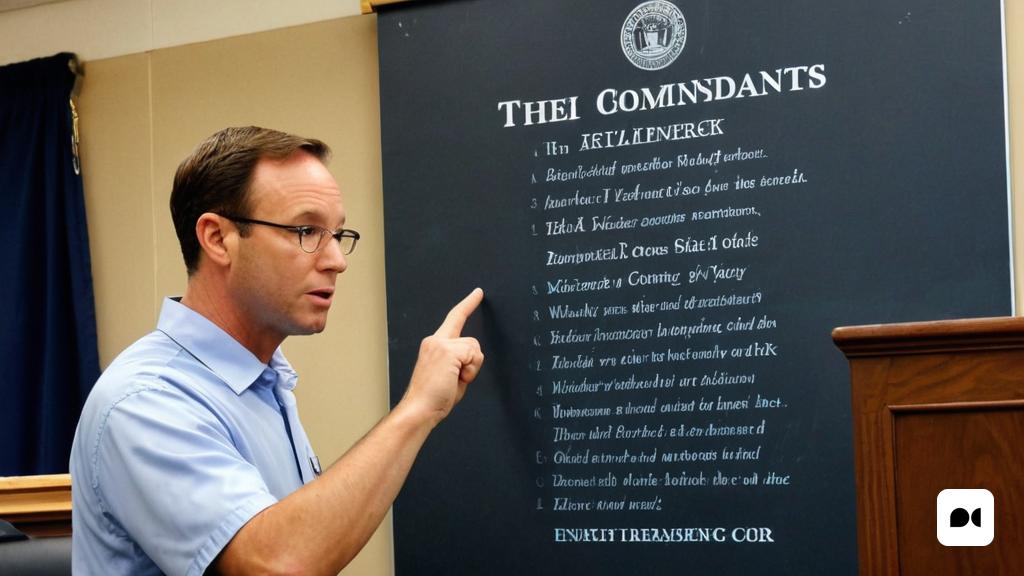A new law in Louisiana
A new debate has opened in the United States following the law introduced by the state of Louisiana this Wednesday, which requires the display of ‘The Ten Commandments’ in all classrooms from next year, in schools, from nursery schools to the University, which receive public money.
With this controversial law, signed by Republican Gov. Jeff Landry and approved by lawmakers last month, Louisiana becomes the first state in the country to implement this rule, which requires the text of the Ten Commandments of God’s law to be printed on a poster that must have a size of no less than 27 by 35.5 centimeters, and that must be clearly visible in the classrooms, with a ‘large and easily legible’ font size.
The basis of all laws
The new law (HB-71) was pushed by Louisiana state representative, Republican Dodie Horton, who defends that the ten commandments ‘are the basis of all laws in Louisiana’, while the Democrats, who voted in against, they consider it unconstitutional.
Landry, before signing the law as governor, defended it and admitted that ‘if you want to respect the rule of law, you have to start from the original law. Moses received the Ten Commandments from God,’ said the Louisiana governor.
The case has unleashed a strong controversy in the country, and the frontal rejection of civil liberties groups, who have promised to make a common front against the law.
Civil rights organizations, against
These civil rights organizations claim that the law violates Supreme Court precedent and the First Amendment, and would result in ‘unconstitutional religious coercion’ of students.
In a joint statement, they emphasize that ‘the First Amendment promises that we can all decide for ourselves what religious beliefs, if any, to hold and practice, without government pressure. Politicians cannot impose their preferred religious doctrine on public school students and families.’
The organizations argue that ‘more than 40 years ago, (…) the Supreme Court struck down a similar state statute, holding that the First Amendment prohibits public schools from posting the ‘Ten Commandments’ in classrooms. No other state requires them to be displayed in public schools’, they complained.
The United States orders ‘the separation of Church and State’ by stating that ‘Congress shall make no law respecting an establishment of religion, or prohibiting the free exercise thereof’. In fact, states like Texas, South Carolina and Utah have tried to pass similar initiatives without success.
The case on which the supporters of the law lean
But supporters of such measures have seized on a 2022 case in which the Supreme Court reinstated a high school football coach who was disciplined in a controversy following the prayers he did in the field.
The ruling, in the case ‘Kennedy v. Bremerton School District (WA)’, offered a more flexible interpretation of the constitutional order that prevents state-sponsored religion.
The decision gave former Bremerton High School football coach Joe Kennedy a victory, ruling that a silent prayer by him at midfield after the game did not violate the Constitution.
The court ruled that the prayers amounted to private speech protected by the Constitution and could not be restricted.
What are ‘The Ten Commandments’?
The Ten Commandments are a code of laws based on the Old and New Testaments of the Bible, which are part of Christian thought.
According to believers, God revealed these ten laws to Moses on Mount Sinai.
These are:
– You will love God above all things
– You will not say the name of God in vain
– You will sanctify the holidays
– You will honor father and mother
– You will not kill.
– You will not commit impure actions
– You will not steal
– You shall not bear false witness or lie
– You will not indulge in impure thoughts or desires
– You will not covet your neighbor’s goods

